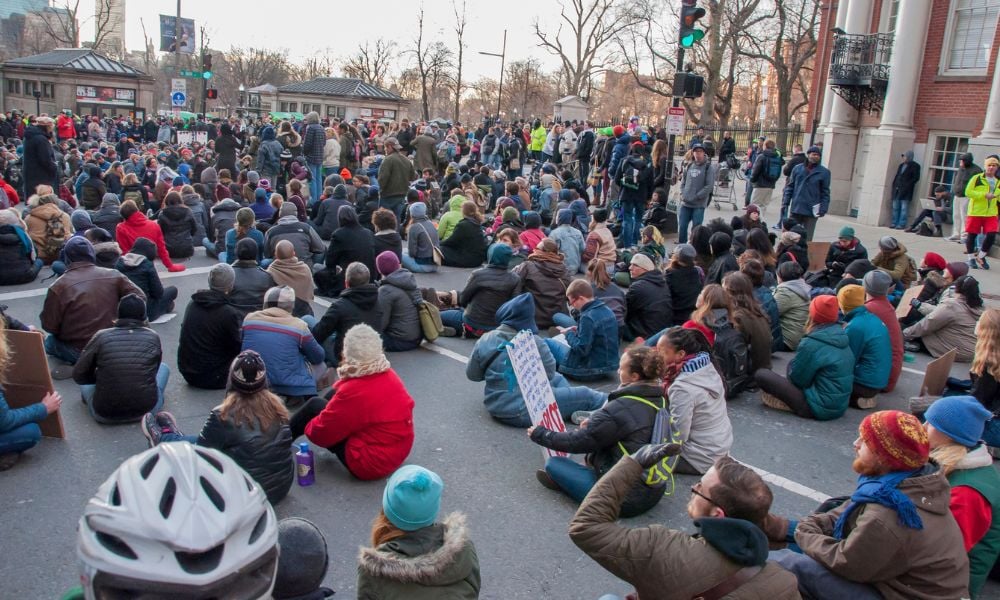Protest highlighted failings of government in treatment of Indigenous people

The arrest and detention of protesters that staged a camp to highlight government failings in its treatment of Indigenous people was lawful, the Saskatchewan Court of Appeal has found.
In Dubois v. Saskatchewan, 2022 SKCA 100, Richelle Dubois and several others set up a protest camp near the legislative building in Regina. The round-the-clock occupation was established to “highlight the failings of the judicial, political and other societal systems with respect to the treatment of Aboriginal people."
However, the camp did not comply with the bylaws of the Provincial Capital Commission despite being advised of the permit application process. The protesters ignored the notice to vacate the area and were arrested.
Dubois sought declarations from the Court of Queen’s Bench that the dismantling of the camp and their arrest unjustly infringed on their freedom of expression and right to be free from arbitrary detention.
Right to use public spaces not absolute
The chambers judge dismissed the application, ruling that the right to access and use public spaces is not absolute and the protesters were required to vacate the property until otherwise authorized by the commission. As for their arrests, the chambers judge ruled that their arrest and detention was lawful and not arbitrary.
On appeal, Dubois argued that the judge improperly reversed the onus of proof involved in the analysis required under the charter. They also argued that their arrest was for obstruction of justice, which was illegal since their acts were not done to defeat the course of justice “in a judicial proceeding.”
The appellate court disagreed.
Contrary to Dubois’ assertions, the chambers judge did not reverse the onus in the minimal impairment part of her analysis on the alleged infringement of the right to freedom, said the court.
The appellate court also rejected the idea that reconciliation should be considered in the analysis. While the goal of reconciliation can play a role in general principle, it is not a trump card that displaces all other considerations in the reasonableness assessment involving charter rights, said the court. Further, the appellate court found that the protesters themselves were unclear on how reconciliation should fit into the analysis and simply emphasized the general importance of reconciliation.
As for the arrest, the chambers judge had sufficient evidence to conclude that Dubois was not arrested for obstruction of justice, said the court. Despite the language used in their affidavits, the arresting officers had no reason to believe that Dubois was interfering with a “judicial proceeding,” but rather, self-evidently, interfering with the efforts to dismantle the camp, said the court.
The appellate court dismissed the appeal.










